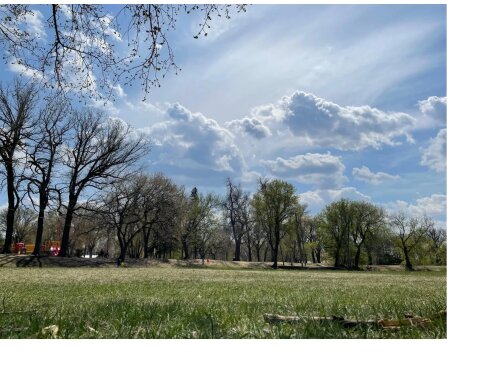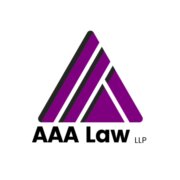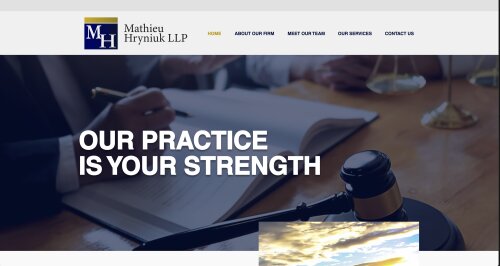Best Legal Document Lawyers in Toronto
Share your needs with us, get contacted by law firms.
Free. Takes 2 min.
List of the best lawyers in Toronto, Canada
About Legal Document Law in Toronto, Canada
Legal Document law in Toronto, Canada refers to the body of regulations and rules that govern the preparation, execution, and interpretation of legal documents. These documents can include wills, contracts, affidavits, powers of attorney, and various other agreements.
Legal Document law aims to ensure that these documents are properly drafted, enforceable, and meet all legal requirements. It is important to understand the specific laws and regulations governing Legal Document in Toronto, Canada to safeguard your rights and interests.
Why You May Need a Lawyer
While it is possible to handle certain Legal Document matters on your own, there are various situations where seeking the assistance of a lawyer is highly recommended. Some common situations where you may need a lawyer in the field of Legal Document include:
- Drafting or reviewing complex legal documents
- Disputes or disagreements over the interpretation or enforcement of a legal document
- Legal issues arising from the execution of a will or power of attorney
- Negotiating and drafting contracts or agreements
- Handling real estate transactions or lease agreements
- Applying for legal aid or navigating government assistance programs
Legal Document matters can be complex and involve the interpretation of intricate laws and regulations. A knowledgeable lawyer can provide expert advice, ensure your documents comply with legal requirements, and represent your interests in legal proceedings if necessary.
Local Laws Overview
Toronto, as part of Ontario, follows the laws and regulations set forth by the province. Some key aspects of local laws that are relevant to Legal Document in Toronto, Canada include:
- Ontario Wills and Estates Law: The Succession Law Reform Act governs the execution and interpretation of wills, powers of attorney, and estate matters.
- Contract Law: Ontario's contract law regulates the formation, validity, and enforceability of contracts, including those related to Legal Document.
- Real Estate Law: The Ontario Real Estate and Business Brokers Act oversees real estate transactions and regulates the actions of real estate professionals.
- Ontario Rules of Civil Procedure: These rules outline the procedure for civil litigation, which may be applicable to Legal Document disputes.
It is important to consult with a lawyer who understands these local laws and can provide specific guidance based on your unique circumstances.
Frequently Asked Questions
1. Is it necessary to hire a lawyer for drafting a will?
While it is not legally required, consulting a lawyer is highly recommended for proper will drafting. A lawyer ensures your will is valid, clearly expresses your wishes, and helps minimize the potential for disputes.
2. How can a lawyer assist with contract review?
A lawyer can analyze the terms of a contract, identify potential risks, negotiate changes if necessary, and ensure your rights and interests are protected before you sign.
3. What should I consider when choosing a power of attorney?
When selecting a power of attorney, it is crucial to choose someone you trust and who is capable of making decisions on your behalf. A lawyer can help you understand your options and ensure your power of attorney is legally sound.
4. What are the key steps in a real estate transaction?
A real estate transaction typically involves steps such as document preparation, title searches, negotiations, financing, inspections, and closing. Consulting a lawyer can guide you through these steps and safeguard your rights as a buyer or seller.
5. Can I apply for legal aid for Legal Document matters?
Legal aid eligibility for Legal Document matters depends on various factors, including your income, assets, and the nature of your case. Contact Legal Aid Ontario or consult a lawyer to determine if you qualify for legal aid.
Additional Resources
Here are some resources, governmental bodies, and organizations related to Legal Document that can be helpful for someone in need of legal advice in Toronto, Canada:
- Law Society of Ontario: The governing body for lawyers and paralegals in Ontario. They can provide referrals to qualified legal professionals.
- Ontario Court of Justice: The provincial court responsible for legal proceedings in matters such as wills, estates, contracts, and other Legal Document issues.
- Legal Aid Ontario: A government-funded program that provides legal assistance to low-income individuals who qualify.
- Legal Clinics: Various legal clinics and community organizations in Toronto offer free or low-cost legal services. Search for local clinics that specialize in Legal Document matters.
Next Steps
If you require legal assistance in Legal Document matters, follow these steps:
- Evaluate your legal needs and determine which specific area of Legal Document law your issue falls under.
- Research and identify experienced lawyers or legal clinics specializing in the relevant area.
- Consult with the selected lawyers or legal clinics to discuss your case, understand their fees, and evaluate their expertise.
- Select a lawyer or legal clinic that suits your needs and allows you to work collaboratively on your Legal Document matter.
- Attend meetings, provide all necessary information, and follow your lawyer's guidance throughout the legal process.
Remember, it is important to act promptly and seek legal advice whenever you are uncertain or require assistance in Legal Document matters to protect your rights and interests.
Lawzana helps you find the best lawyers and law firms in Toronto through a curated and pre-screened list of qualified legal professionals. Our platform offers rankings and detailed profiles of attorneys and law firms, allowing you to compare based on practice areas, including Legal Document, experience, and client feedback.
Each profile includes a description of the firm's areas of practice, client reviews, team members and partners, year of establishment, spoken languages, office locations, contact information, social media presence, and any published articles or resources. Most firms on our platform speak English and are experienced in both local and international legal matters.
Get a quote from top-rated law firms in Toronto, Canada — quickly, securely, and without unnecessary hassle.
Disclaimer:
The information provided on this page is for general informational purposes only and does not constitute legal advice. While we strive to ensure the accuracy and relevance of the content, legal information may change over time, and interpretations of the law can vary. You should always consult with a qualified legal professional for advice specific to your situation.
We disclaim all liability for actions taken or not taken based on the content of this page. If you believe any information is incorrect or outdated, please contact us, and we will review and update it where appropriate.














